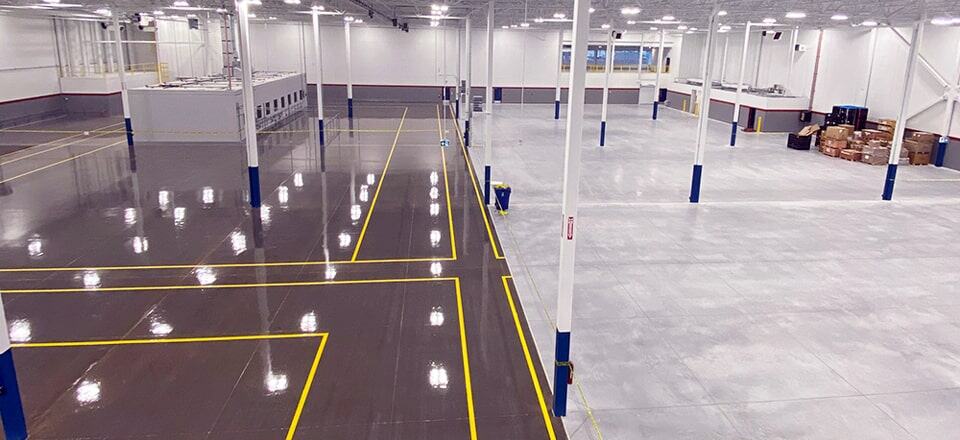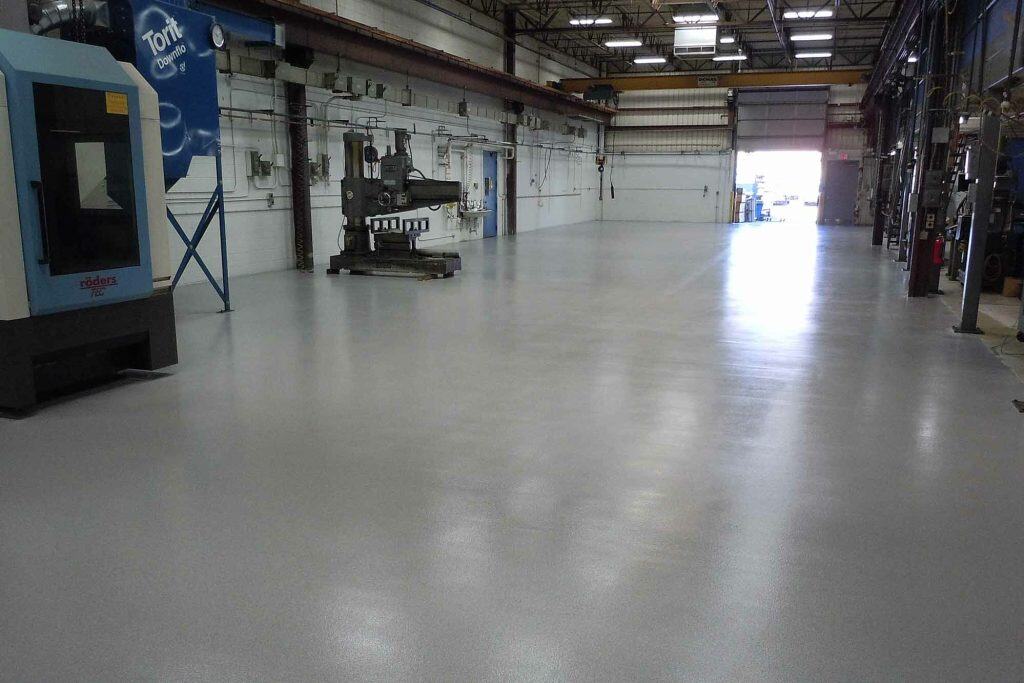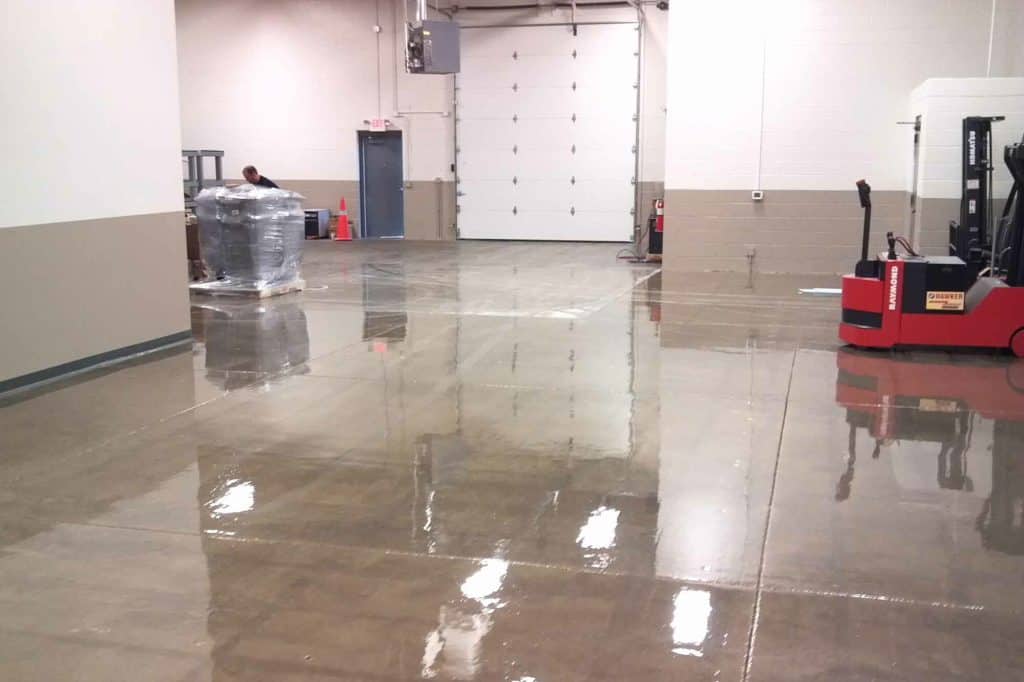Industrial spaces need tough, long-lasting flooring that can handle heavy machinery, high foot traffic, and exposure to chemicals. That’s where industrial epoxy flooring comes in. It’s more than just a surface—it’s a reliable foundation for businesses that rely on durability and performance.
Epoxy flooring has become a popular choice across manufacturing plants, warehouses, and automotive workshops because of its strength and low maintenance. Unlike traditional concrete, industrial epoxy floor coating adds a layer of protection that prevents stains, and wear. With industrial epoxy flooring, businesses don’t have to worry about constant repairs or replacements.
Choosing the right flooring makes a big difference in efficiency and safety. This guide covers everything you need to know, from types and benefits to installation and cost considerations. Whether upgrading a current space or building from scratch, understanding epoxy options ensures a choice that lasts.

Factories and warehouses need tough flooring that stands up to everything from forklifts to chemical spills. Industrial epoxy flooring is one of the strongest solutions available. It’s a durable, protective coating that binds to concrete, creating a smooth, non-porous surface.
Unlike other industrial flooring solutions, epoxy can withstand heavy weight, resist damage from oils and chemicals, and last for years with minimal upkeep. Flooring options for industries often include concrete, tiles, and vinyl, but epoxy stands out because of its seamless finish and resistance to moisture and abrasions.
Comparing the best flooring for industrial use shows epoxy’s advantage over other materials. Concrete, while strong, can crack over time. Vinyl wears down with heavy use. Epoxy offers a balance of durability, safety, and ease of maintenance, making it an ideal choice for a wide range of industrial applications.
Industrial spaces deal with everything from foot traffic to chemical spills, and floors need to handle it all. Epoxy flooring offers several advantages that make it a strong contender for warehouses, factories, and workshops.
The impact resistance and durability of epoxy flooring allow it to support heavy machinery and constant foot traffic without wearing out prematurely. This makes it one of the most reliable flooring solutions for the industry.
Epoxy is also resistant to chemicals and extreme temperatures, which is necessary for industries where acids, oils, and other substances frequently spill on the floor. Unlike other flooring types, epoxy doesn’t absorb stains or degrade quickly.
Maintenance is simple. The seamless surface makes cleaning easy—no grout lines where dirt can accumulate. Its slip-resistant properties further enhance safety, reducing accidents in bustling industrial settings.

Industries have different flooring needs, and the right epoxy choice depends on the type of work being done.
Key factors to consider include the level of traffic, exposure to chemicals, and temperature extremes. A standard epoxy floor may be enough for a warehouse, but manufacturing plants may need high-resistance coatings.
Many businesses opt for custom solutions to meet specific needs. Colour-coded zones, additional protective coatings, or slip-resistant textures can be added to enhance safety and functionality.
For high-traffic industries, selecting the right epoxy ensures the floor holds up to daily use while maintaining a professional appearance.
Epoxy flooring isn’t the only option for industrial spaces, but how does it compare to other choices?
Epoxy vs. polyurethane flooring: Both are durable, but polyurethane has more flexibility, making it resistant to scratches. However, epoxy provides better adhesion to concrete and higher resistance to heavy loads.
Epoxy versus traditional concrete flooring: Plain concrete is affordable but prone to cracks and stains. Epoxy provides an extra layer of protection, minimising wear and tear.
Pros and cons: While epoxy offers longevity and safety advantages, it does require proper installation to perform at its best. Choosing the right option depends on the specific needs of the facility.
Floors take a beating every day—constant foot traffic, heavy equipment, and unexpected spills. The wrong choice leads to cracks, stains, and endless maintenance. A durable, resilient surface saves time, money, and frustration in the long run.
Finding the right flooring shouldn’t be a gamble. It needs to handle daily wear and tear without losing its appeal. A strong, low-maintenance solution keeps your space looking professional and safe while standing up to the toughest conditions.
At Express Epoxy, we provide flooring built to last, ensuring durability without compromising style. Let’s create a surface that works as hard as you do—get in touch today!
Costs vary, but expect to pay between $80 to $160 per square metre.
Epoxy is a type of resin flooring. Compared to some alternatives, epoxy is stronger and more resistant to impact.
Warehouses, factories, healthcare, automotive, and food processing industries see the most benefits from epoxy’s durability and safety features.
A properly installed and maintained epoxy floor can last 10 to 20 years in an industrial setting.
Yes, high-resistance epoxies can withstand extreme temperatures and chemical exposure, making them suitable for challenging conditions.
